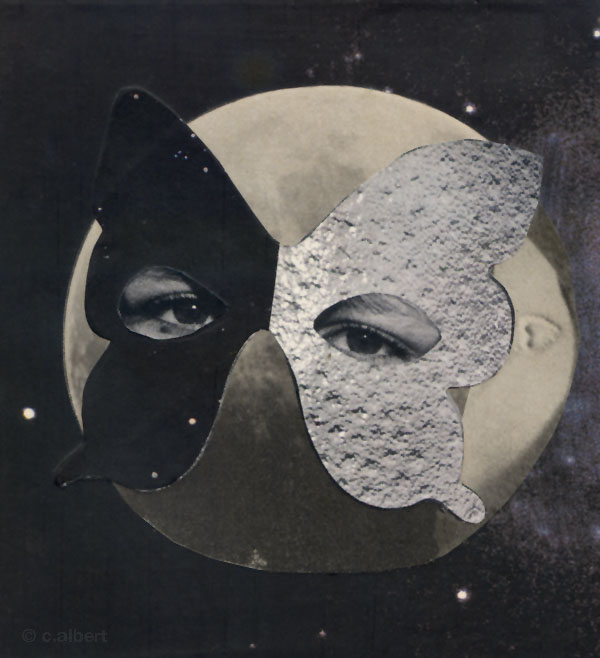Runaway
In a new city, I meet the arranged
apartment with green carpets in sad
basement light. When I take
my first walk, a dog rushes
at me and barks for a long while;
I become stone. In the Beacon Hill
market, I ask for a bottle of California
Riesling because already I miss
the terrain I left. The checker tells me
that every morning he thanks the saints
he is alive and eats seven eggs
for breakfast.
For a moment, I am loved
by his eyes. This isn’t home
but another place I will dream
of coming back to.
“Runaway” is reprinted from The View from Here.
C. Albert regularly publishes poetry and collage at ink sweat and tears where she is Artist in Residence. Other publications include Wicked Alice, Centrifugal Eye, The View from Here, Monarch Review. . . She is currently conducting experiments with photography and box art.

